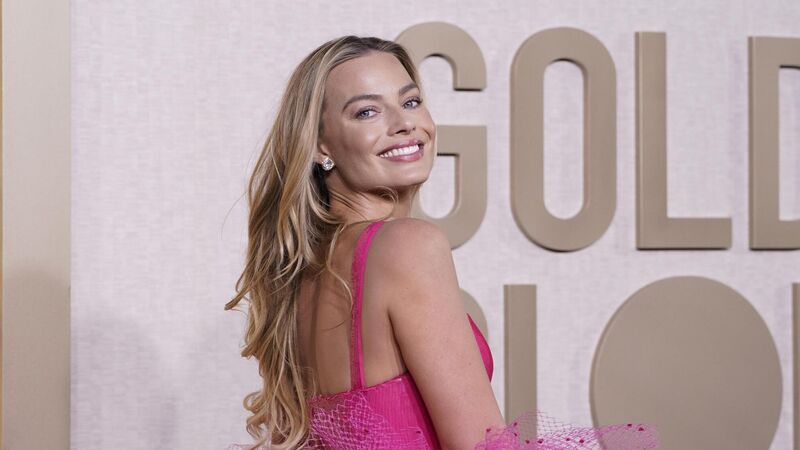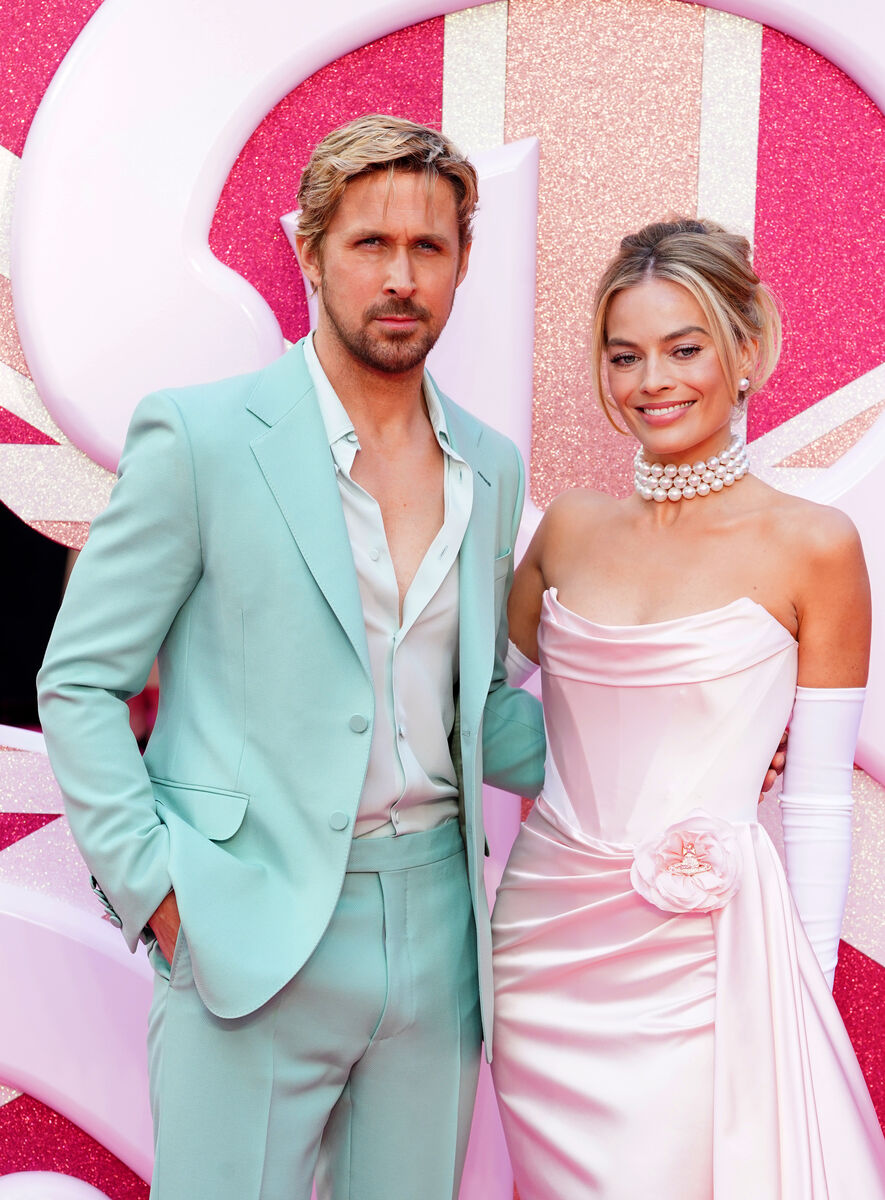Séamas O'Reilly: Oscars snub commentary provides a stirring glimpse into the online mind

Many people Margot Robbie was snubbed by the Oscars. Picture: Jordan Strauss/Invision/AP
I don't know when Oscar-watching became a mainstream sport, but we’re probably at least a decade into jargon-heavy discourse about what does and doesn’t get nominated.
For Irish people, of course, there exists a pleasing, separate subcategory of Oscar talk, related solely to how our collective sons and daughters fare on the ballot. I call this the “I see your one is doing well for herself” discourse, in honour of every time an Irish mammy or daddy has uttered some variant of those words, usually on reading that an old school friend of yours has opened a second premises for their dog grooming business, or ended up in the paper for winning Best Small Practice at the North West Region Chiropodist of the Year Awards.
2024 has been another banner year of Irish people doing well for themselves at the Oscars, with Irish talent receiving 12 nominations, depending how you calibrate the stats. Cillian Murphy leads the Best Actor pack for his performance in , while , produced by Dublin art-film powerhouse Element Pictures, received the other 11 nominations. These include nods for the film’s Irish crew – including its producers, and cinematographer Robbie Ryan – and also its international talent; which means, if Emma Stone, Mark Ruffalo or Yorgos Lanthimos win on the night, Irish people get to change someone else’s nationality for a change (on which more later).
No such discourse would be complete without snubs however, and it is disappointing that neither Andrew Scott nor Paul Mescal were shortlisted for their devastating performances in Andrew Haigh’s impossibly tender romance drama, Nor was there a shout for Barry Keoghan’s irrepressible turn in , a film that achieved the rare feat of being watched and discussed by almost everybody, and dominating the broadsheet think-piece marketplace for an entire month after its release, with only about 5% of its viewers knowing whether they liked it or not.
A further sub-sub-category of Irish awards watching has also proved disappointing. I refer, of course, to the ritual bloodsport of jumping on English magazines and news outlets when they call our actors “British”, which has not had a very fertile year. There were tremors of delight when British declared Keoghan “one of our most exciting actors”. Some hay was indeed made from this assertion — we gotta eat, after all — but since a fairly standard reading of that sentence’s syntax could make that “our” a general comment on “our generation”, it felt a bit like going through the motions.
The worry is that news outlets are getting wise, so I hereby make the following plea to my fellow begrudgers: we are overplaying our hand. We don’t want this practice to stop entirely — it keeps us warm in those first frigid months of every year — so I suggest we ease off until they let their guard down, and we may feast again. To this end, confusing the world’s press by claiming Ayo Edebiri as one of our own has been a welcome first step.

Outside of the local interest angle with this year’s Oscars, the biggest controversy has been the snubs borne by . Now, to be clear, sympathy for the makers of a movie about a toy that garnered eight Oscar nominations — not to mention box office takings of $1.45bn worldwide — might well be limited. But it’s hard not to raise a drawn-on eyebrow at the news that star Margot Robbie and director Greta Gerwig went unmentioned, while Ryan Gosling got a nomination.
On the one hand, there is something inescapably, and bitterly, ironic about Ken getting a nomination and Barbie missing out. It is, in fact, so in keeping with the deftly cartoonish tone of own feminist critique, that it could easily have been depicted in an end credits scene to that movie itself.
On the other, this is a subjective collation of 11,000 Academy voters. The extant Best Actress and Best Director nominees are extremely strong, showcasing a plurality of voices and backgrounds worth celebrating, none of which seems a clear and obvious candidate to be removed in Barbie’s favour.
This is, we must admit, also true for Scott, Mescal and Keoghan, whose great performances also lost out to, well, other great performances. Within hours of the announcement, Gosling had released a statement expressing his disappointment. As a friend and colleague of Gerwig and Robbie, this gesture was perfectly understandable. As the person who risks taking collateral damage from this online snub war, it was likely essential. By the time Hillary Actual Clinton had released her own statement the following day, the lamentations over – a film nominated for both Best Picture and Best Adapted Screenplay, which has thus far earned more money than the GDP of the Seychelles – had reached dazzling levels of snubmania.
In the long run, the meta-commentary around awards season provides a stirring glimpse into the cognitive dissonance of the online mind. Everyone agrees that all awards for art are, on some level silly, and the Oscars most of all. We know this instinctively any time we switch on our TV and Green Book is on, and are forced to reckon with the fact that it is not even six years since it somehow won Best Picture.
A reverse variant of the same effect occurs when we watch the following year’s winner Parasite, a truly excellent Korean film which can’t help reminding us that films in all other languages have seemingly been eligible for Best Picture this whole time, but have simply never done so one other time in 96 years.
It’s almost as if none of this makes much sense at all. In which case, I say we focus on those things we can control in preparation for next year’s Oscar season: slipping a few quid to every English journalist we can find, so they’ll finally start calling Saoirse Ronan and Domhnall Gleeson Brits again.





